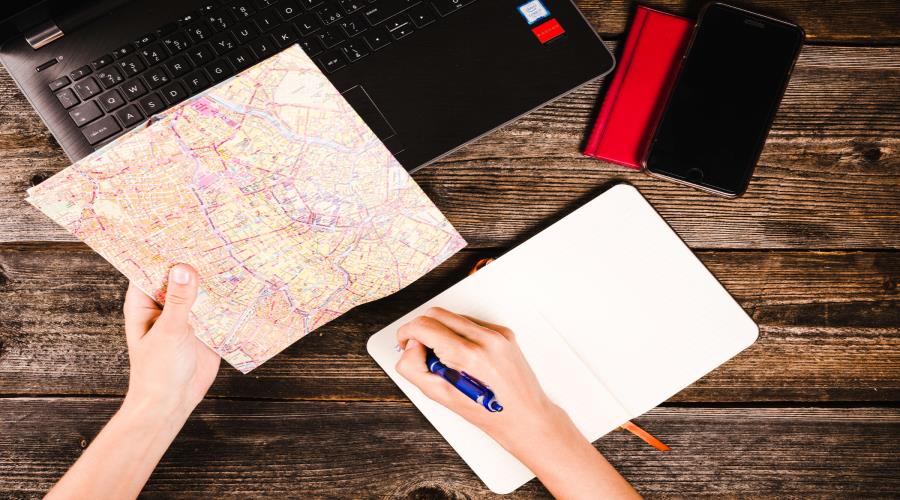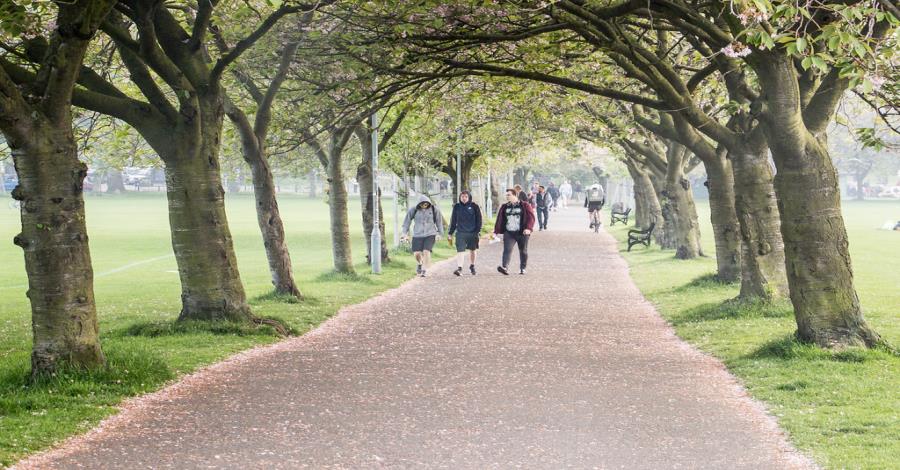Embarking on a road trip is more than just a journey from point A to point B; it’s an adventure waiting to unfold, filled with endless possibilities and unexpected discoveries. The open road beckons with its promise of freedom and excitement, leading you down winding paths and through picturesque landscapes. But before you set off on this epic escapade, proper planning is key to ensuring a smooth and memorable experience. From mapping out your route to packing essential supplies, mastering the art of planning a road trip will elevate your travel game to new heights. So buckle up, fellow wanderer, as we delve into the intricacies of crafting the perfect itinerary for your next road-tripping expedition. Get ready to navigate through scenic vistas, charming towns, and hidden gems along the way as we unlock the secrets of how to plan a road trip like a seasoned traveler.
1. Choosing the destination
When it comes to choosing the destination for a road trip, consider stepping outside your comfort zone and exploring lesser-known places. Instead of opting for popular tourist spots, do some research to uncover hidden gems that offer unique experiences. Prioritize destinations that align with your interests and hobbies, whether it’s hiking in the mountains or exploring quaint coastal towns.
Another crucial factor to consider is the season and weather conditions at your chosen destination. Plan your road trip during a time when the weather is favorable for outdoor activities and sightseeing. Additionally, think about the logistics of reaching your destination – factor in driving distances, accommodation options, and potential road closures due to seasonal changes. By carefully selecting a destination that suits your preferences and aligns with practical considerations, you can ensure a memorable and enjoyable road trip experience.
2. Planning the route and stops
When planning a road trip, it’s essential to carefully map out your route and stops to ensure a smooth and enjoyable journey. Consider the distance between each stop and factor in driving time, rest breaks, and potential detours. Look for interesting landmarks, scenic routes, and local attractions along the way to add depth to your itinerary.
Researching the best dining options, accommodation choices, and activities at each stop can enhance your road trip experience. Keep in mind that flexibility is key when planning your route – unexpected discoveries and spontaneous detours are part of the adventure. By staying open to new possibilities and embracing the unknown, you can create unforgettable memories on your road trip.
3. Preparing your vehicle and supplies
When planning a road trip, it’s crucial to prepare both your vehicle and supplies to ensure a smooth journey. Start by checking the condition of your tires, brakes, fluids, and lights to avoid any unexpected breakdowns on the road. Additionally, make sure to pack an emergency kit with essentials such as first aid supplies, water, snacks, a flashlight, and basic tools for maintenance.
To enhance your road trip experience, consider investing in some travel-friendly gadgets like portable phone chargers or a GPS device. Organizing your supplies in clear containers can also make it easier to access what you need during the trip. Lastly, don’t forget about entertainment options such as music playlists or audiobooks to keep you entertained during long stretches of driving. By preparing both your vehicle and supplies thoughtfully, you can increase safety and convenience while embarking on your road trip adventure.
4. Budgeting for expenses along the way
When embarking on a road trip, it’s crucial to budget for expenses you may encounter along the way. Unexpected costs like tolls, parking fees, and emergency repairs can quickly add up and derail your travel plans. To avoid getting caught off guard, allocate a portion of your budget specifically for these unplanned expenses.
Additionally, consider setting aside a separate fund for spontaneous activities or indulgences that you may come across during your journey. Whether it’s trying local cuisine, attending impromptu events, or splurging on unique souvenirs, having some extra funds available can enhance your travel experience and create lasting memories. By planning ahead and being mindful of potential expenses beyond the basics, you’ll be better prepared to handle any financial surprises that may arise during your road trip adventure.
5. Booking accommodations in advance
When planning a road trip, booking accommodations in advance can significantly enhance your travel experience. By securing your lodging ahead of time, you avoid the stress of searching for a place to stay last minute. Additionally, booking in advance allows you to research and select accommodations that best suit your preferences and budget.
Furthermore, advanced booking can help you save money by taking advantage of early bird discounts or special promotions. It also gives you peace of mind knowing that you have a confirmed place to rest after a long day on the road. So next time you plan a road trip, make sure to prioritize booking accommodations in advance to ensure a seamless and enjoyable journey.
6. Safety tips for a smooth journey
Before setting off on a road trip, it’s essential to plan your route and schedule breaks along the way. Make sure to check weather conditions and road closures beforehand to avoid unexpected detours. Additionally, inform someone about your travel plans and regularly update them on your whereabouts for safety purposes.
While driving, stay alert and focused by taking regular breaks every few hours. Avoid distractions such as texting or using your phone while driving to minimize the risk of accidents. Always wear seat belts and ensure that all passengers do the same to prevent injuries in case of sudden stops or collisions. Remember that safety should always be a top priority during any journey.
7. Happy travels and adventure awaits!
Embarking on a road trip can be an exhilarating adventure that offers the freedom to explore new places and create lasting memories. To start planning your journey, it’s important to map out your route, considering not only the destinations you want to visit but also the scenic routes that will enhance your experience. Researching accommodations along the way can ensure a comfortable stay and provide opportunities to immerse yourself in the local culture.
Beyond just ticking off landmarks and attractions, prioritizing spontaneous stops and detours can lead to unexpected discoveries and memorable moments. Embracing flexibility in your itinerary allows for serendipitous encounters with locals, hidden gems off the beaten path, and unplanned adventures that add depth to your travel experiences. By embracing uncertainty and being open to new possibilities, every road trip becomes a unique journey filled with surprises and joys waiting around each bend.
Conclusion:
In conclusion, planning a road trip requires careful consideration and preparation to ensure a smooth and enjoyable journey. By creating a detailed itinerary, researching accommodations and attractions along the route, and packing essential supplies, travelers can minimize unexpected challenges and make the most of their experience. It is important to factor in flexibility for unforeseen circumstances and to budget wisely to avoid any financial strains. With proper planning and organization, road trippers can embark on an adventure filled with unforgettable memories and exciting discoveries. So start mapping out your next road trip today and get ready to hit the open road!
FAQs
Can I plan a road trip on a budget?
Yes, you can plan a road trip on a budget by researching affordable accommodations, packing snacks and meals, and choosing cost-effective activities.
How do I create an itinerary for a road trip?
Start by deciding on your destinations, mapping out the route, and allocating time for sightseeing, rest stops, and activities along the way.
What essentials should I pack for a road trip?
Essentials include clothing for various weather conditions, toiletries, snacks, water, navigation tools (maps or GPS), first aid kit, and entertainment options.
How can I ensure my vehicle is road-trip ready?
Ensure your vehicle is well-maintained by checking oil levels, tire pressure, brakes, lights, and fluid levels before embarking on your road trip.
What are some safety tips to consider while on a road trip?
Safety tips include wearing seatbelts at all times, avoiding distracted driving, taking breaks when feeling fatigued, and having emergency contact information readily available.
Is it recommended to book accommodations in advance for a road trip?
It’s advisable to book accommodations in advance to secure preferred locations and rates during peak travel seasons or popular destinations.
How can I find interesting attractions off the beaten path during my road trip?
Research online travel guides or apps, ask locals for recommendations, and explore smaller towns or scenic routes to discover hidden gems along your journey.
What should I do if faced with unexpected challenges during my road trip?
Stay calm and assess the situation first; then seek assistance from roadside assistance services or local authorities if necessary. Always have a backup plan in place for emergencies.




